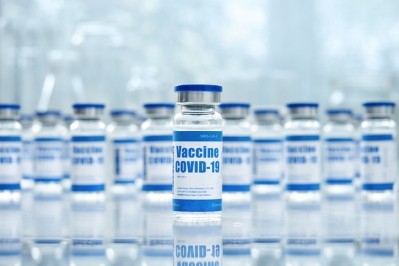Tackling virus variants: EMA publishes guidelines for modified COVID-19 vaccines

A question for regulators globally is how they will treat amended or new version of vaccines that are developed against new virus strains. They could, for example, be treated in the same way as seasonal flu vaccines are regulated; but most jurisdictions have not yet set out a clear policy.
The EMA’s human medicines committee (CHMP) has issued guidance for vaccines that rely on the same technology and platform as the authorized parent vaccine. The reflection paper outlines the non-clinical and clinical data that would be required to support approval of a variant vaccine, whether monovalent of multivalent.
“The three authorised vaccines [Pfizer, Moderna, AstraZeneca] provide protection against the variants that are currently prevalent across Europe," notes the EMA. "However, it appears that with continued mutations and new variants emerging, authorised vaccines may need to be adapted, in time to ensure continued protection. Initial data indicates that some of these variants may have an impact on the level of protection provided by COVID-19 vaccines against infection and disease.
“Therefore, it is an urgent public health priority to define an expedited regulatory process for the adaptation of vaccines to protect against current or future variants. There are ongoing discussions at international level on how to approach variants and vaccines in a coordinated way.
“The assumption behind the CHMP’s guidance is that a new variant vaccine would largely rely on the same technology and platform as the ‘parent’ vaccine - a vaccine already approved in the EU for the prevention of COVID-19. The difference would be in the specific structure (antigen) selected to trigger the immune response in the body.”
Bridging studies
In terms of clinical data, the EMA says that large-scale safety and efficacy studies will not be needed – and would present feasibility constraints.
“The efficacy of variant vaccines should therefore be demonstrated in immunogenicity studies that are designed to investigate the immune response triggered by the variant vaccine against the variant virus," says the EMA.
“EMA recommends that at least one clinical trial is conducted in subjects that have not been vaccinated and have never been infected with SARS-CoV-2. A small group of subjects should be randomly selected to receive either the parent or the variant vaccine. This ‘bridging study’ is intended to gather evidence to demonstrate that the immune response, measured as neutralising antibodies, triggered by the variant vaccine against the variant virus is of the same magnitude as the immune response elicited by the parent vaccine against the parent virus.
“Should vaccination with the parent vaccine be no longer feasible, e.g. because of ethical considerations, a comparison between immune responses triggered by vaccination with the variant vaccine against the variant strain and prior data on the immune response with the parent vaccine against the parent strain, could suffice.
“Manufacturers should also study the efficacy of the variant vaccine when given as a single dose, as a booster, to subjects previously vaccinated with the parent vaccine. The immune response induced by one dose of the variant vaccine against the variant strain should be compared with the immune response recorded during clinical trials with the parent vaccine against the parent strain of the virus.”
The EMA's reflection paper can be found here.
The US Food and Drug Administration (FDA) has also set out its guidelines for developing variant-specific vaccines: in a document published last week.
















